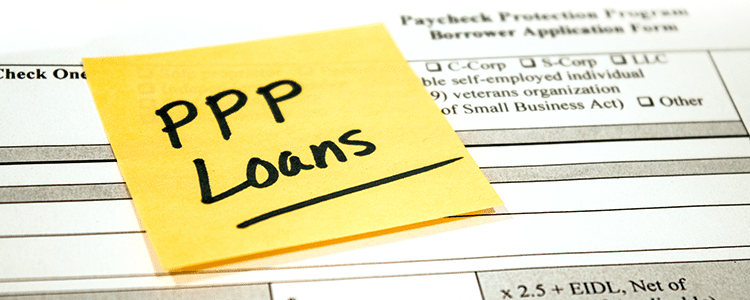 When the CARES Act was passed in March 2020, one area that remained uncertain was the tax treatment of the Paycheck Protection Program (PPP) loan forgiveness and whether it would be treated as taxable income to borrowers who had this debt discharged. The way this forgiveness would be handled potentially affected the millions of businesses who took advantage of PPP loans.
When the CARES Act was passed in March 2020, one area that remained uncertain was the tax treatment of the Paycheck Protection Program (PPP) loan forgiveness and whether it would be treated as taxable income to borrowers who had this debt discharged. The way this forgiveness would be handled potentially affected the millions of businesses who took advantage of PPP loans.
Background
PPP loans have been a pivotal source of income for businesses that were negatively impacted throughout the Covid-19 pandemic. During 2020, there were over $500 billion of these loans issued to small businesses across the country. In addition to assisting with cash flow, another favorable component of the PPP loans that is especially appealing is the eligibility for loan forgiveness upon PPP borrowers satisfying certain requirements.
For income tax purposes, generally when debt is forgiven it is treated as taxable income to whom the debt is forgiven. Even though the person or business who has had the debt forgiven may never actually receive any cash in hand, the rationale behind this policy is that, by having their debt forgiven, the borrower has received a true economic benefit. Therefore, the tax treatment of the PPP Loan forgiveness was in question.
Tax Exemption
Thankfully, with respect to PPP loans, Congress has made an exception to this general concept when it passed the Coronavirus Response and Relief Supplemental Appropriations Act the (CRRSAA). The CRRSAA makes it explicitly clear – forgiven PPP loans are entirely tax exempt and will not be regarded as taxable income for federal income tax purposes.
On the state and local level, there is some variance between states. With respect to Pennsylvania businesses who took out PPP loans, the Pennsylvania Legislature has followed Congress’ lead. PPP loans that are forgiven will not be treated as taxable income for Pennsylvania tax purposes and businesses may claim deductions for business expenses paid for with PPP loan proceeds when filing their Pennsylvania income tax returns.
It must be noted for businesses operating in other states – each state has its own discretion of whether or not to treat PPP loan forgiveness as taxable income. Some states have opted to not treat PPP loan forgiveness as taxable income, but still disallow businesses from taking deductions of business expenses that were paid for with PPP loan proceeds. Those who are uncertain of the state and local tax treatment of PPP loan forgiveness of a particular state their business has nexus with can consult this map.
If you have any questions concerning PPP loans or its tax implications, please contact one of our Corporate, Business & Banking attorneys.









